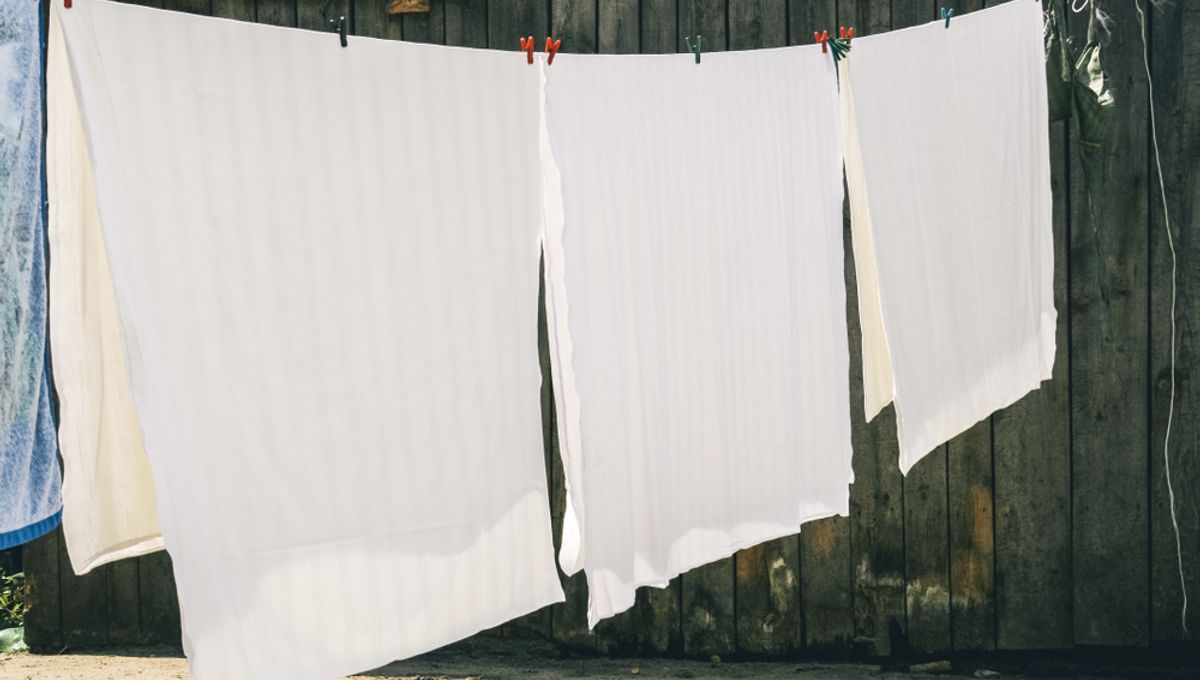
It’s a chore many dread but the science suggests most of us should be washing our bedding more often. Experts advise changing the sheets once a week – or once every two weeks at the very most.
The average person spends a third of their life sleeping (or attempting to), so needless to say we spend a lot of time in bed. Thanks to a delightful combination of sweat, dead skin cells and dust mites (among other things), it is not long before our nighttime sanctuary turns (in the words of New York biologist Phillip Tierno) into a “botanical park” of bacteria and fungus.
These unwanted bedfellows can trigger an array of problems, including eczema, allergies and asthma. In short, they can make you sick – even if you don’t typically suffer from allergies, Tierno told Business Insider. Hence his recommendation: wash your bedding once a week.
Maintaining a regular laundry routine is particularly important during the summer months when we are likely to be sweating a little more and face the added problems of hay fever and pollen. Chartered psychologist Dr Lindsay Browning told Radio 1 Newsbeat said winter can be a little more “forgiving”.
Dermatologist Alok Vij, MD, told the Cleveland Clinic there are other factors that suggest it might be a good idea to wash your sheets a little more often. This includes whether or not you have pets, how much you sweat, if you suffer from allergies or asthma, and if you sleep naked.
To make sure you are washing your sheets effectively, Dr Manal Mohammad, senior lecturer in microbiology at the University of Westminster, recommends washing bedding in warm to high temperatures 104-140°F (40-60°C), alternating pillowcases every few days and letting your bed “air” in the morning – pulling the bedsheets back in the morning makes your bed less welcoming for bacteria and dust mites.
So, while we should all be washing our bedding once a week (or every two at a minimum), how often do we actually get around to doing the laundry?
According to research conducted in the UK by YouGov, less than a third of Brits wash their bedding on a weekly basis (28 percent), a little more wash their sheets every two weeks (36 percent), while one in ten surveyed admitted to changing the bed sheets roughly once a month. Single men might just be the worst culprits – in 2022, the BBC reported that 45 percent of respondents in this category left their bedsheets unchanged for up to four months.
Readers across the pond might be feeling smug at the news, but Americans don’t fare much better. A poll published in 2017 found almost half (44 percent) wash their sheets just once or twice a month, one in ten change their linens once a quarter and a stinky five percent manage to swap the bed covers just once or twice a year.
Source Link: How Often Should You Wash Your Bedding?